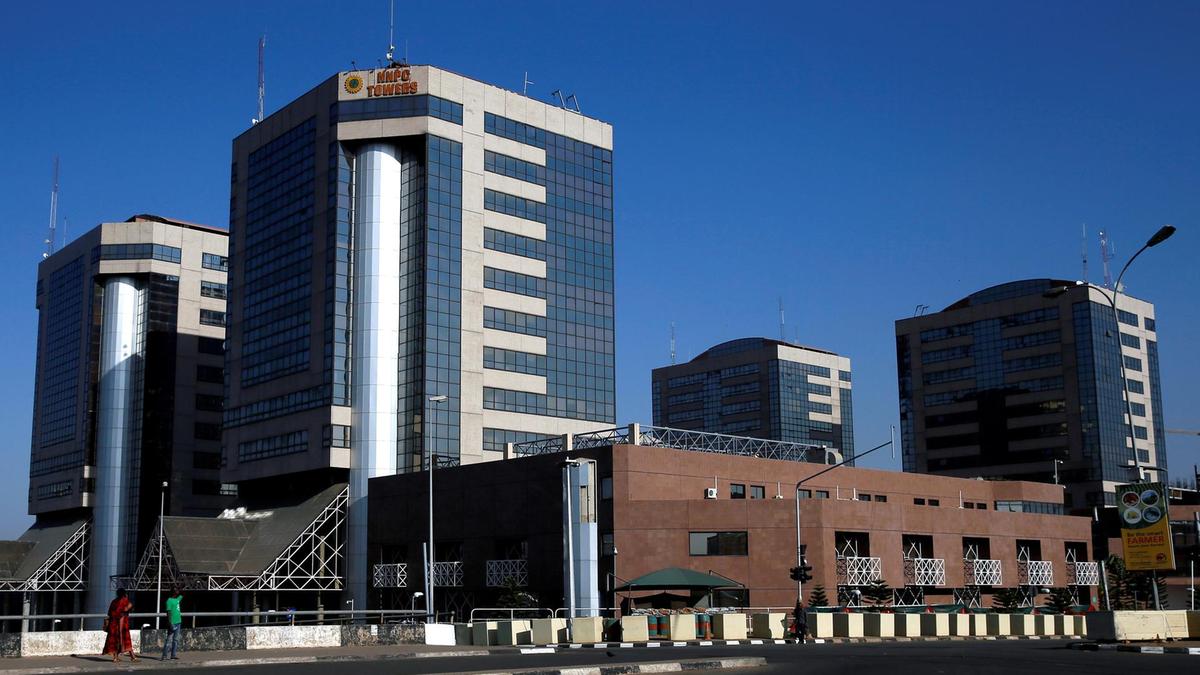Commercialisation of NNPC must work
One of the key elements of the recently passed Petroleum Industry Bill (PIB) by the National Assembly is the commercialisation of the Nigeria National Petroleum Company (NNPC). Indeed by all accounts the need to unbundle the inefficient behemoth which the NNPC has for all practical purposes become not just on the oil and gas industry […]

The Nigerian National Petroleum Corporation, NNPC
One of the key elements of the recently passed Petroleum Industry Bill (PIB) by the National Assembly is the commercialisation of the Nigeria National Petroleum Company (NNPC).
Indeed by all accounts the need to unbundle the inefficient behemoth which the NNPC has for all practical purposes become not just on the oil and gas industry but in the nation’s finances was one of the fundamental reasons for the total restructuring of the oil and gas industry which the PIB hopes to achieve.
This much was captured in the bill which declared that “the key objective is ensuring good governance and accountability, creation of a commercially oriented national petroleum company and fostering a conducive environment for petroleum operations’’.
In this regard the bill also calls for the “incorporation of a commercial and profit focused NNPC Limited under the Company and Allied Matters Act (CAMA) within six months from commencement of the new law with ownership vested in the Ministry of Finance Incorporated (and Ministry of Petroleum Incorporated) on behalf of the Federation to take over assets, interests and liabilities of NNPC. This structure is expected to pave way for the eventual sale of shares to Nigerians’’.
This provision in the PIB is certainly a welcome development to Nigerians who have grown tired of seeing an underperforming NNPC. This is as we have seen petroleum companies like Petrobras of Brazil, Petronas of Malaysia, Aramco of Saudi Arabia, all of them national petroleum companies of their respective countries just like our NNPC, become key players in the international oil industry.
The commercialisation of the NNPC is expected to pave way for the realisation of the full potentials of the Nigerian petroleum industry attracting local and international investors just as other sectors like telecommunications have been witnessing unprecedented growth with positive results in Nigeria as a whole.
We, therefore, welcome this particular provision in the bill because a commercialised NNPC will drastically reduce if not stop altogether the humongous waste of public funds which is being witnessed and entrench accountability which is virtually non-existent in the current NNPC set up. Indeed the NNPC, if properly managed has a lot to offer the country. The Corporation is not only about bringing petroleum products into the country and paying subsidy for same.
The reform of the NNPC is long overdue and all stakeholders should welcome this and support the efforts.
However, it is our view that if indeed the government is desirous of commercialising the NNPC, it should go all out and achieve it. There is no need to wait for another six months after the bill must have been signed into law before commencing the process. All the bottlenecks that could hinder the process should be removed before the bill is signed into law. But we also hope that this does not turn round to bite the very citizens who have clamoured for it as we have seen in the commercialisation of some sectors in the past. This should be done in such a way that the average Nigerian benefits from it. If shares are to be sold to private citizens, there should be a level playing field for everyone interested.
We also must note that there is no time to waste bearing in mind that developments in the global oil industry may not be favourable in the long run for producers like Nigeria. Research into alternative sources of energy is going apace which may eventually render fossil fuels like oil irrelevant. Also oil finds around the world are being made rapidly as a result of new exploration methods which bring new oil fields into the equation, thereby giving investors the latitude to pick and choose which countries to invest their funds in relative to operating environment and profitability.
Against this background, this is the best time for Nigeria to prepare for what is likely to be the coming headwinds in the global oil industry. We may likely not get such an opportunity again if we let this slip as we have done in the past.
Commercialisation of the NNPC should be given the full attention and support it requires.
